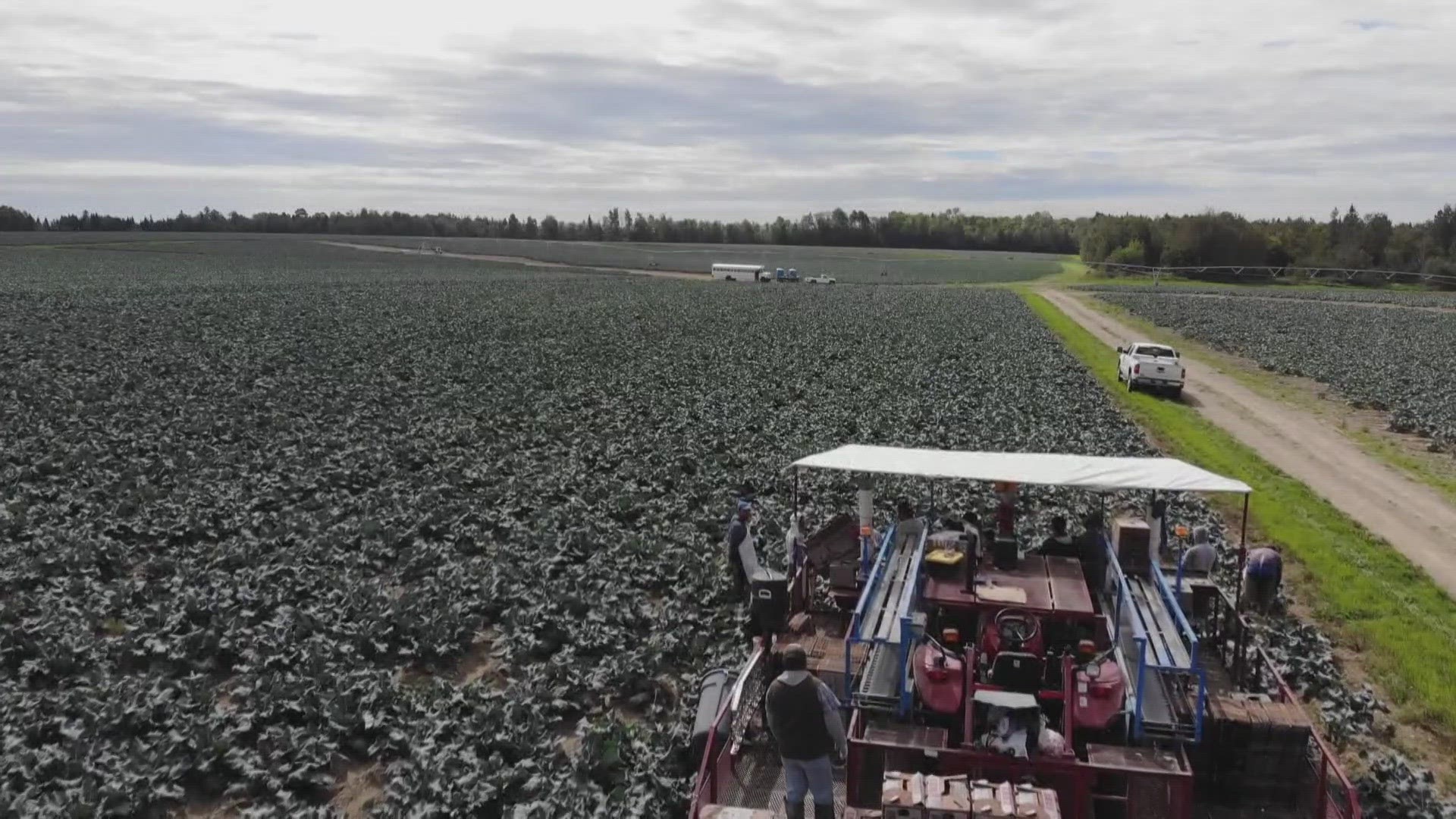AUGUSTA, Maine — Maine’s farmers are coming off a difficult year.
In 2023 they saw a late frost in May that damaged many fruit trees and other plants, and then summer and fall were unusually wet. The frequent rain storms made it hard for equipment to work in the fields and hampered the growth of some crops.
At the annual Maine Agricultural Trades Show, while discussions of a difficult 2023 surfaced, most farmers were more focused on the growing season ahead.
“We grumble a lot, but we’re always looking forward to the new season, “ Walt Whitcomb, a longtime dairy farmer and former Maine Commissioner of Agriculture, said.
Whitcomb said farmers always face multiple challenges in Maine, from weather to markets for crops, and the financial realities of farming in a small state.
Maine’s traditional major crops—potatoes, wild blueberries, and dairy, have all struggled with market changes over the decades, but are still the the most lucrative for the state. Apples and broccoli are also significant crops.
Vegetable farms have become more and more common, with some producing large crops for wholesale grocery stores, while smaller farms might focus on local shops and farmers markets.
Those small growers, often organic farms, have seen notable growth in the recent past, Ryan Dennett of MOFGA, the Maine Organic Farmers and Gardeners Association, said.
“In 2007, we had $23 million in [organic] sales annually, and in 2021 it had doubled to $52 million in sales,” Dennett said. “So we are seeing a lot of [growth] with vegetable producers but also floral, because flowers are profitable and can grow on small acreage," she added.
However, Dennett said in that same period, organic milk sales had declined, a serious concern for MOFGA and others because milk is by far the most valuable organic food product sold in Maine.
Annie Watson is one of the organic dairy farmers. She and her husband bought Sheepscot Valley Farm 11 years ago. He was experienced in dairy farming, but she was not. Watson said dairy farming is a struggle, but they aren’t about to give up.
“The fact we’re so resilient, and our farmers are so resilient, it's what keeps so many in it. The reality is none of us want to give up because of what it would mean to our neighbors and friends in the industry.”
Whitcomb said he has seen the decline in all dairy farming for years, to the point Maine now has fewer than 150 dairy farms of all types.
However, he said dairy and other sorts of farming will survive, as it always has.
“I think it will be here. I’m confident it will be here.” Whitcomb said.
But when asked what farming will look like in 10 to 20 years, he had no prediction.
“My confidence level in how it's going to look is far less than it used to be. “
One of the ongoing trends among many farms has been diversifying their products, to have more things to grow, make, and market. Whitcomb said his farm, now managed by his daughters, began making and selling cheese four years ago as a way to generate more income. He said farmers, especially smaller ones, have learned how to sell their products online, as well as at retail stores and farmers markets, and that is allowing them to reach and sell to a far broader audience.
Watson said she and her husband are currently working on ideas to diversify their dairy farm.
PFAS contamination, solar farms taking land out of production, energy costs, and difficulty making a profit are just some of the challenges facing Maine farmers.
Watson said she loves raising her children on the farm but admits the ability to make a profit on their farming may be the most urgent challenge for farmers to solve.
“There are definite rewards, but there has to be financial stability to recognize the importance of these farms. There has to be financial stability, not just rainbows, and sunshine we exist on.”

